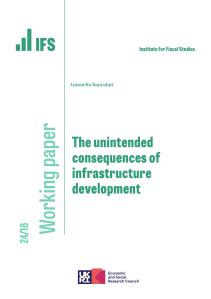Labour’s 2019 general election manifesto pledged to “bring rail, mail, water and energy” alongside “the broadband-relevant parts of BT” into public ownership. In this report we set out the scale of this proposed programme of nationalisation and some of the key issues it would raise.
- Labour proposes to nationalise mail, water, energy distribution and supply, train operators and fibre broadband provision. This would bring at least 5% of the total UK assets currently held by private companies into public ownership, lead to an over £200 billion increase in the assets owned by the public sector and would add over 310,000 to the size of the public sector workforce.
- It would also bring at least £150 billion of debt onto the public balance sheet on top of the sum paid out to the current owners of these assets in compensation. The cost of appropriately paying for these companies is uncertain as many of them are privately owned, though it would certainly come, at the very least, to many tens of billions of pounds.
- It will be important to provide compensation to current owners at the appropriate market price. To pay more would represent bad value for money for the taxpayer. To pay less would amount to an expropriation of private property, which would leave current owners (including pension funds) out of pocket. Many of the privately held companies are foreign owned. Paying less than their full market value would risk harming the UK’s reputation and standing with other countries.
- A certain amount of state control in these industries is not uncommon in the rest of Europe, and having a privately managed and owned water industry makes England and Wales outliers relative to elsewhere in Western European (including Scotland and Northern Ireland). But, nationalisations on this scale in advanced western economies have been almost unheard of in the last half century.
- These are important industries for the operation of the UK economy. They are economically big in themselves, but that understates their importance to the operation of the UK economy more broadly. Reorganising the ownership and structure of these industries, while simultaneously achieving the ambitious targets that have been set (for instance the rapid decarbonisation of the electricity and gas grids), risks years of disruption.
- Given their importance, and the enormous cost, complexity and risk involved in bringing them into public ownership the key question must be what is it that can be so much more readily achieved through a transfer of ownership that cannot be achieved through altering the current regulatory framework. These are, after all, all industries subject to significant regulatory control and it is unclear which of Labour’s stated objectives could not be achieved via changes to the current system of regulation.










